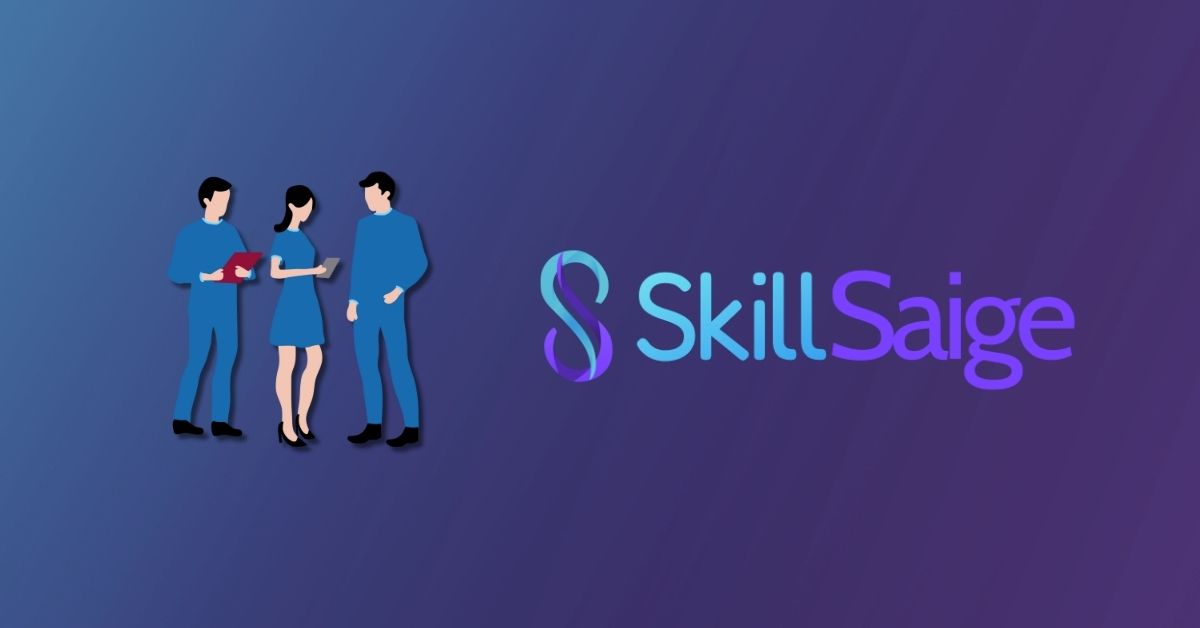The Unwritten Rules of Professionalism: How to Navigate Company Culture Without Losing Your Mind
30 Sep 2025 – SkillSaige Team
Landing your first job (or even your fifth) isn’t just about hard skills and experience. It’s about mastering the unspoken rules of professionalism and office etiquette. And let’s be honest: no one hands you a manual titled “How to Not Accidentally Annoy Your Boss While Still Being Yourself.”
Young professionals and job seekers face many challenges in the job market. However, navigating unwritten workplace rules that cause miscommunication and the mental toll of workplace uncertainty can be extremely taxing, directly impacting mental health. Want to test practical professional skills like mock interviews, professionalism, networking, and more? Try SkillSaige for free.
So, how do you decode professionalism without burnout? Let’s break it down.
1. The Hidden Rulebook of Workplace Expectations
Ever showed up to work in what you thought was a perfectly professional outfit, only to realize you missed the memo on “casual Fridays aren’t that casual”? You’re not alone.
Research from GenHQ’s 2022 Workforce Report confirms this struggle, revealing that a staggering 72% of Gen Z managers believe their generation has a different understanding of what constitutes “workplace appropriate” behavior. This generational gap in unwritten workplace culture leads to miscommunication, disconnection, and unnecessary stress. Some common ones include:
- Communication Skills & Styles (Is a Slack thumbs-up acceptable, or should you write a full paragraph?)
- Meeting office etiquette (Are you expected to speak up or just listen?)
- Hierarchy norms (Can you joke with your manager, or is that career suicide?)
The Fix?
- Observe first, act second. Pay attention to how senior colleagues behave.
- Ask (tactfully). A simple, “What’s the usual protocol for this?” can save you from awkwardness.
- Find a mentor. Someone who’s been there can decode the culture for you.
2. The Anxiety of “Hey, Can We Talk” at Work
Ever gotten a vague message like “Hey, can we talk later?” and spent the next three hours convinced you’re getting fired? Workplace ambiguity is terrible for mental health and can severely stall your career growth.
Key reasons uncertainty hurts:
- It triggers imposter syndrome (“Do they even want me here?”)
- It wastes mental energy (Overanalyzing every interaction is exhausting.)
- It stalls progress (If you don’t know expectations, how can you meet them?)
This need for clarity is a defining trait of the modern workforce. The same GenZ research found that 45% of Gen Z employees want daily or weekly feedback from their manager, far more than any other generation. This isn’t about neediness; it’s a strategic desire to perform well and reduce workplace anxiety.
The Fix?
Clarify early. If a message is unclear, respond with, “Sure! What would you like to discuss so I can be prepared?”
- Document expectations. After meetings, send a quick recap: “Just confirming next steps…”
- Normalize feedback. Proactively ask for regular check-ins so you’re not left guessing.
3. Professionalism isn’t One-Size Fits All
Yes, every workplace has its quirks, but some professionalism basics are universal. For today’s job seekers, success hinges on a blend of strong communication skills and core professional skills.
- Reliability: Show up on time, meet deadlines.
- Respect: Even if you disagree, keep it constructive.
- Adaptability: This is crucial. The job market demands professionals who can pivot. Learn the culture without losing your authenticity. GenZ’s are a pragmatic generation, with 41% seeing their current job as a temporary step, meaning the ability to adapt and learn is their most valuable currency for long-term career growth.
And remember: Being professional doesn’t mean being robotic. You can still be yourself, just with a little more awareness.
Final Thoughts:
The workplace will always have unspoken rules, but the key is balance. The goal isn’t to become a corporate clone, but to develop the professional skills and adaptability to navigate any environment effectively.
-
Learn the norms without obsessing over perfection.
- Communicate clearly to reduce uncertainty and protect your mental health.
- Stay true to your strengths while adapting where needed.
Future leaders can upskill their soft skills with the free for everyone, SkillSaige app
Related Posts
Small Communication Moments Create Big Impact at Work
Most communication breakdowns at work don’t come from conflict. They come from everyday moments where intent and impact quietly diverge. A cryptic response in a meeting. A quick decision without explanation. A conversation that ends before others feel heard.
These moments shape how people experience working with you. And over time, they influence trust, collaboration, and credibility. This is especially true for early-career employees and GenZs who are learning the unwritten rules of workplace communication.
22 Jan 2026
The Fastest Way to Lose Trust at Work
Most people think trust is lost through big mistakes. A missed deadline. A bad presentation. A blown client call. In reality, trust at work usually erodes much more quietly. Trust disappears through small moments of unclear communication that pile up until people start second-guessing your reliability.
14 Jan 2026
Leading Gen Z Start with How You Communicate
Mid-level managers today are navigating a unique leadership challenge. You’re responsible for delivering results while leading a generation that entered the workforce during disruption, rapid change, and constant information flow. If communication feels harder than it used to, it’s not your imagination.
12 Jan 2026
